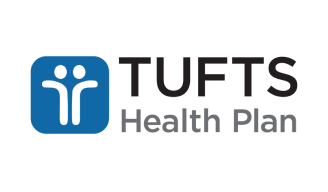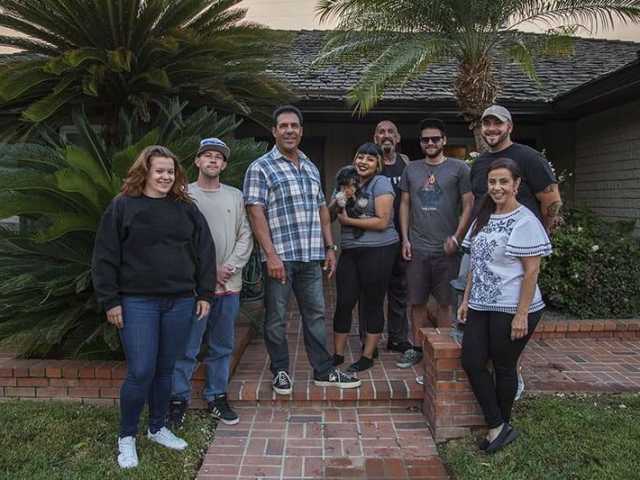Anaheim, California, United States
Restorations Health Care
Verified
Verified
This provider’s information has been quality-checked by Recovery.com’s Research Team for accuracy and completeness, including center verification through appropriate third-party organizations.
Joint Commission Accredited
The Joint Commission accreditation is a voluntary, objective process that evaluates and accredits healthcare organizations (like treatment centers) based on performance standards designed to improve quality and safety for patients. To be accredited means the treatment center has been found to meet the Commission's standards for quality and safety in patient care.
Provider's Policy
Taking the first step towards addiction recovery is often the hardest part of the process. At Restorations Health Care, our addiction specialists strive for the highest quality of care and are here to change lives for the better.
Estimated Cash Pay Rate
The cost listed here ($30,000/30 days) is an estimate of the cash pay price. Center pricing can vary based on program and length of stay. Contact the center for more information. Recovery.com strives for price transparency so you can make an informed decision.
About Restorations Health Care
Located just minutes from Hollywood and the fantastic beaches of Huntington and Newport, Restorations Health Care provides detox, residential, and outpatient treatment that empowers clients to achieve lasting recovery from alcohol and substance use disorders. They provide both evidence-based and experiential therapies, all with the mission of ending the cycle of addiction and laying the foundation for an enjoyable future without drugs or alcohol.
A Safe Environment to Heal
No two treatment plans are alike at Restorations Health Care. For each client, the team uses a tailored combination of evidence-based, experiential, 12-Step, and medical assistance to aid recovery. Caring staff provide a safe option to help alleviate withdrawal symptoms during detox. After detox, clients then immerse themselves in the therapeutic community. Psychotherapy in 1-on-1 sessions creates a safe environment for digging deep, uncovering dysfunction, and treating co-occurring disorders like depression, anxiety, post-traumatic stress disorder (PTSD), and trauma. Popular forms of psychotherapy at Restorations Health Care include cognitive behavioral therapy (CBT) and dialectical behavioral therapy (DBT). Group therapy invites peer education, joint learning, and positive feedback. Family therapy helps clients deal with negative patterns in close relationships and familial circumstances. Their 12-Step program encourages positive peer engagement, self-esteem building, and relapse prevention.
Beyond Traditional Talk Therapy
A high priority at Restorations Health Care is that clients be able to enjoy life again. In addition to evidence-based treatment methods, they encourage clients to participate in experiential therapies, from acting out traumatic events or problems in a safe environment to climbing a mountain and camping with a group of people. Animal-assisted therapy helps clients find a sense of connection and purpose again, and get past relational roadblocks to reconnect with the people around them. Volunteering is not only a great way to feel the joys of giving back to others, but also a great opportunity to do sober and social activities; Restorations Health Care clients can help at homeless shelters, soup kitchens, and other nearby non-profit organizations.
Preparation for Ongoing Success
The Restorations Health Care team collaborates with each client to arrange an aftercare plan for ongoing success in all areas of life. Clients leave treatment with a detailed plan complete with the contacts and resources needed to continue along the road of recovery—like medical appointments, local therapeutic resources, 12-Step support groups, sober or transitional living, or any necessary means of continued support. Aftercare also includes follow-up calls between staff and clients.
The Comforts of Home and More
Fantastic beaches are within walking distance of Restorations Health Care’s home-like environment. Clients reside in shared bedrooms and shared bathrooms, and have plentiful communal space inside to relax or play pool. Outside, clients enjoy a swimming pool, patio with a firepit, grill, and green space.
Read More
Insurance Accepted
Provider's Policy:Taking the first step towards addiction recovery is often the hardest part of the process. At Restorations Health Care, our addiction specialists strive for the highest quality of care and are here to change lives for the better.
Passion for Providing All-Around Care
Whether a client is at Restorations Health Care for detox, outpatient, or residential care, they will feel loved, understood, and cared for in a significant way. Staff sincerely want to see clients heal dysfunctional patterns of thought, behavior, and emotion through evidence-based treatments, including cognitive behavioral therapy (CBT) and dialectical behavioral therapy (DBT). They are also passionate about providing opportunities for healing through alternative therapies like art, music, writing, theater, and adventure therapy.
Activities to Build an Enjoyable, Fulfilling Life
As part of Restorations Health Care’s holistic approach to long-term recovery, they provide ample activities throughout the week. Addiction robs people of their ability to have a good time and appreciate everything the world has to offer. That’s why Restorations plans experiences for adventure and fun from game nights and barbecues to beach outings and local events. Clients can also take part in physical fitness training and friendly competitive sports like volleyball, basketball, bowling and much more.
Restoring Relationships with Family Therapy
A loved one’s addiction impacts parents, partners, friends, siblings, and anyone else close to the person in treatment. Family therapy presents the opportunity to dissect and address the strain on these people and relationships. Restorations Health Care invites members of the client’s support system to attend sessions to gain clarity, repair relationships, and pursue positive changes in behavior. It is also a wonderful setting for family members to learn more about addiction so they can better understand the situation.
Care That Goes Beyond Treatment
At Restorations Health Care, their mission is all about changing lives. They believe there is hope for every person they serve and that clients are capable of changing their lives, healing their relationships, and restoring their futures. They provide effective and progressive drug and alcohol treatment to people with dignity and respect. They believe all people have the right to quality care, and that people should cut themselves off from their addictions and not their life. More than just therapy, they help clients learn to live and dream again.

Center Overview
Estimated Cash Pay Rate
Executives
Executive treatment programs typically directly support the needs of people who manage businesses and may provide flexible schedules and office space to allow work during treatment.
Young Adults
Emerging adults ages 18-25 receive treatment catered to the unique challenges of early adulthood, like college, risky behaviors, and vocational struggles.
Men and Women
Men and women attend treatment for addiction in a co-ed setting, going to therapy groups together to share experiences, struggles, and successes.
Midlife Adults
For adults ages 40+, treatment shifts to focus on the unique challenges, blocks, and risk factors of their age group, and unites peers in a similar community.
Professionals
Busy, high-ranking professionals get the personalized treatment they need with greater accommodations for work, privacy, and outside communication.
Veterans
Patients who completed active military duty receive specialized treatment focused on trauma, grief, loss, and finding a new work-life balance.

Treatment Focus
This center treats primary substance use disorders and co-occurring mental health conditions. Your treatment plan addresses each condition at once with personalized, compassionate care for comprehensive healing.

Care Options






Treatment
Specializations
Alcohol
Using alcohol as a coping mechanism, or drinking excessively throughout the week, signals an alcohol use disorder.
Chronic Relapse
Consistent relapse occurs repeatedly, after partial recovery from addiction. This condition requires long-term treatment.
Co-Occurring Disorders
A person with multiple mental health diagnoses, such as addiction and depression, has co-occurring disorders also called dual diagnosis.
Drug Addiction
Drug addiction is the excessive and repetitive use of substances, despite harmful consequences to a person's life, health, and relationships.
Opioids
Opioids produce pain-relief and euphoria, which can lead to addiction. This class of drugs includes prescribed medication and the illegal drug heroin.
Veterans
Patients who completed active military duty receive specialized treatment focused on trauma, grief, loss, and finding a new work-life balance.
Twelve Step
Incorporating spirituality, community, and responsibility, 12-Step philosophies prioritize the guidance of a Higher Power and a continuation of 12-Step practices.
Approaches
Evidence-Based
A combination of scientifically rooted therapies and treatments make up evidence-based care, defined by their measured and proven results.
Experiential
Expressive tools and therapies help patients process past situations, learn more about themselves, and find healing through action.
Twelve Step
Incorporating spirituality, community, and responsibility, 12-Step philosophies prioritize the guidance of a Higher Power and a continuation of 12-Step practices.
Therapies
1-on-1 Counseling
Patient and therapist meet 1-on-1 to work through difficult emotions and behavioral challenges in a personal, private setting.
Meditation & Mindfulness
A practiced state of mind that brings patients to the present. It allows them to become fully aware of themselves, their feelings, and the present moment.
Play Therapy
This approach is commonly used with children. It incorporates elements of play and self-expression, like boardgames, finger painting, dolls, and blocks.
Adventure Therapy
This experiential approach uses the physical and emotional challenges of outdoor activities as tools for personal growth.
Animal Therapy
Animals can inspire trust and self-worth. In this experiential therapy, guided interactions are used to improve social skills and emotion regulation.
Art Therapy
Visual art invites patients to examine the emotions within their work, focusing on the process of creativity and its gentle therapeutic power.
Couples Counseling
Partners work to improve their communication patterns, using advice from their therapist to better their relationship and make healthy changes.
Experiential Therapy
With this approach, patients heal by doing. Therapists help patients process difficult emotions to speak, using guided activities like art or dance.
Family Therapy
Family therapy addresses group dynamics within a family system, with a focus on improving communication and interrupting unhealthy relationship patterns.
Substances We Treat
Alcohol
Using alcohol as a coping mechanism, or drinking excessively throughout the week, signals an alcohol use disorder.
Benzodiazepines
Benzodiazepines are prescribed to treat anxiety and sleep issues. They are highly habit forming, and their abuse can cause mood changes and poor judgement.
Chronic Relapse
Consistent relapse occurs repeatedly, after partial recovery from addiction. This condition requires long-term treatment.
Co-Occurring Disorders
A person with multiple mental health diagnoses, such as addiction and depression, has co-occurring disorders also called dual diagnosis.
Cocaine
Cocaine is a stimulant with euphoric effects. Agitation, muscle ticks, psychosis, and heart issues are common symptoms of cocaine abuse.
Drug Addiction
Drug addiction is the excessive and repetitive use of substances, despite harmful consequences to a person's life, health, and relationships.
Ecstasy
Ecstasy is a stimulant that causes intense euphoria and heightened awareness. Abuse of this drug can trigger depression, insomnia, and memory problems.
Heroin
Heroin is a highly addictive and illegal opioid. It can cause insomnia, collapsed veins, heart issues, and additional mental health issues.
Psychedelics
Hallucinogenic drugs—like LSD—cause euphoria and increased sensory experiences. When abused, they can lead to depression and psychosis.
Aftercare
Experience
Personal Amenities
Amenities
Special Considerations
Couples program
Using gentle clinical care, therapists guide patients and their partner through guided sessions to address issues and work towards lasting solutions.
Gender-specific groups
Patients in gender-specific groups gain the opportunity to discuss challenges unique to their gender in a comfortable, safe setting conducive to healing.
Young Adults Program
Programs for young adults bring teens 18+ together to discuss age-specific challenges, vocational and educational progress, and successes in treatment.
Activities
Off-Site Activities
Off-Site Amenities
Professional Staff
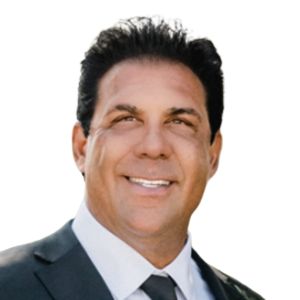
Walt Y.
CEO/Founder

Lacey L.
Clinical Director
MA in Psychology, Marriage & Family Therapy
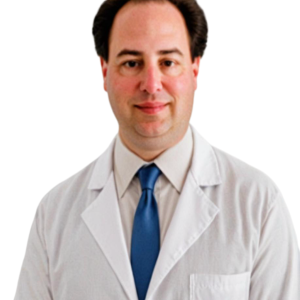
Dr. Aronow
Medical Director/Addictionologist
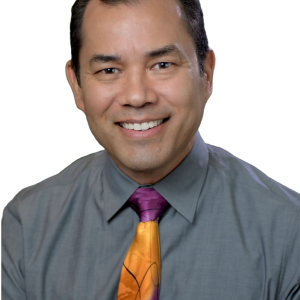
Dr. Portales
Doctor
Board Certified Osteopathic Physician
View More Team Members
We love hearing about your treatment experience
Help individuals and families seeking treatment by sharing your first-hand experience with this treatment provider. Review Guidelines.

























